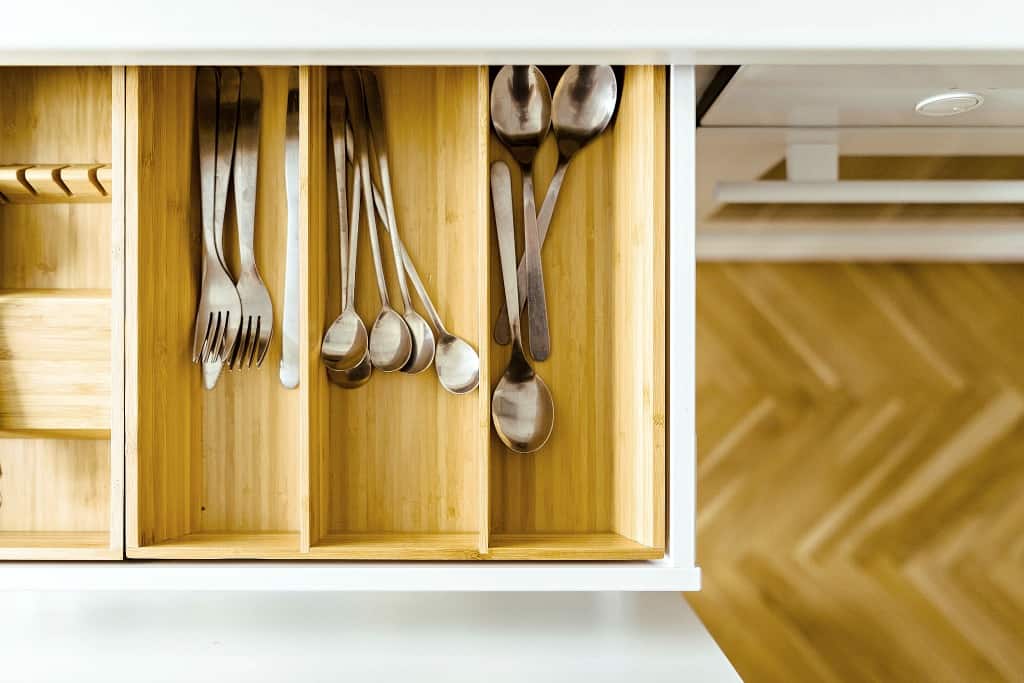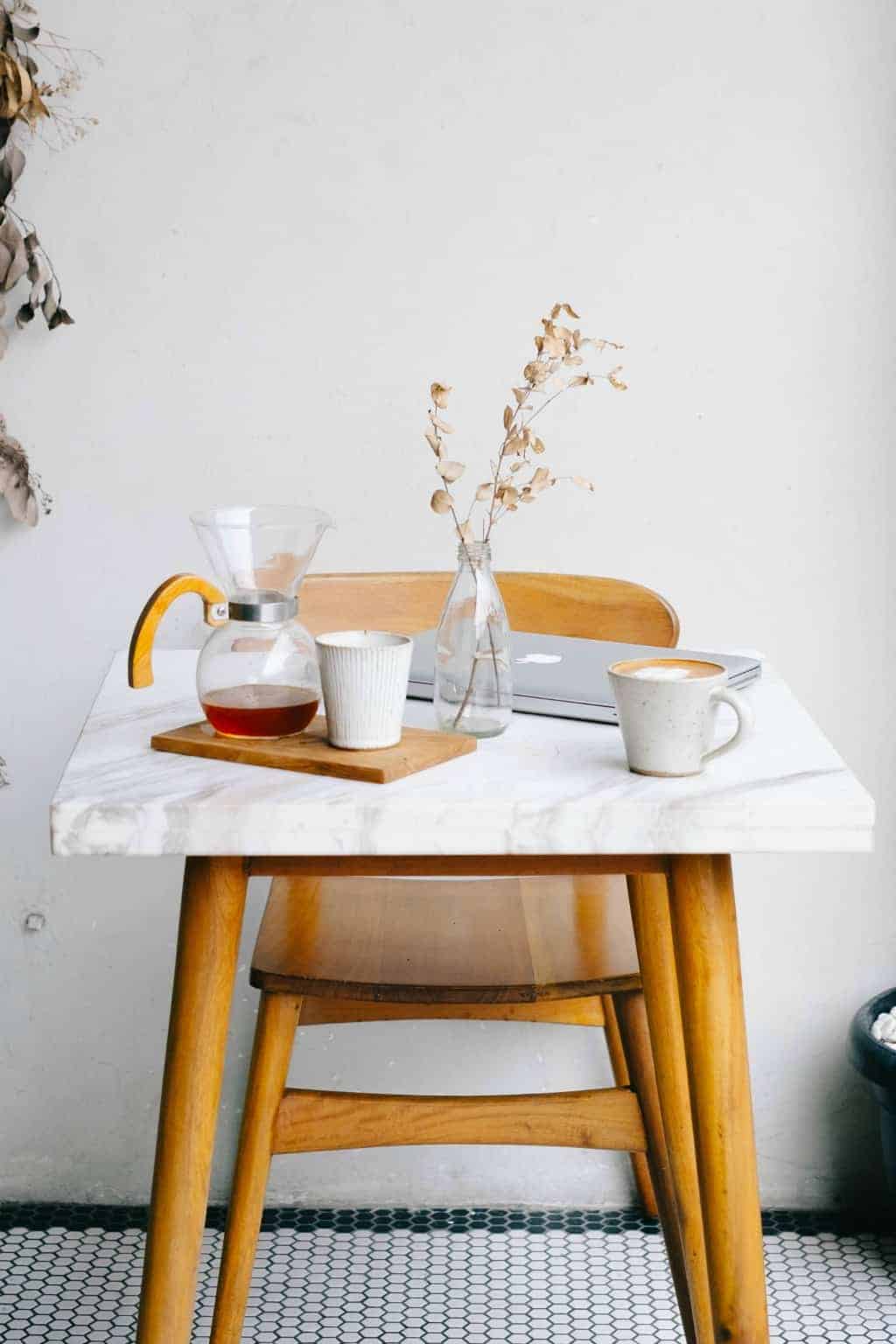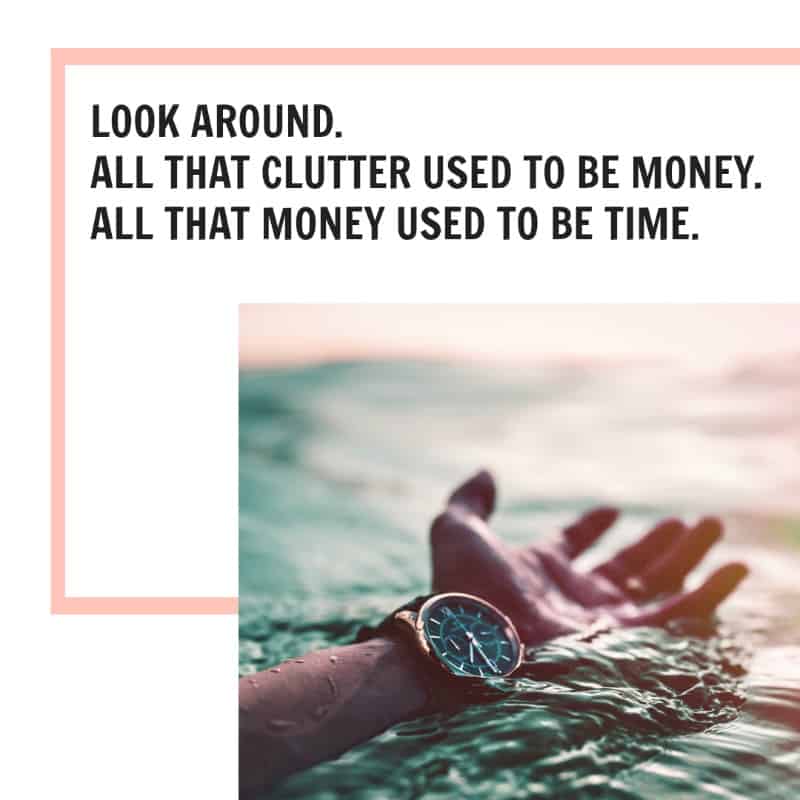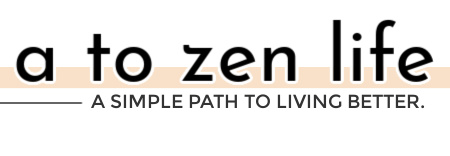What is Minimalism? 10 Simple Principles for Beginner Minimalists
This post may contain affiliate links for your convenience. That means that if you make a purchase, I will receive a small commission at no extra cost to you. Read more here.
What is minimalism? To put it simply, minimalism is a way of life. A minimalist lifestyle can help you rediscover yourself and experience REAL freedom in ways you can’t imagine.
Minimalism is a very freeing philosophy. People who practice minimalist living enjoy a life with more peace, more freedom, and a lot less stress. There’s a reason it’s become so popular.
If you have ever wondered what minimalism is or how to apply it to your current situation, then this guide is for you!

What Is Minimalism?
At its most basic level, minimalism’s core focus might appear to be living with less or even nothing at all. Yet while minimalism reduces physical possessions, at the same time, it increases those intangible elements that truly bring joy and happiness to our lives.
The beauty of minimalism is that it doesn’t have a strict set of rules; it is a philosophy that values being intentional.
Minimalism can allow you to:
- experience less stress and overwhelm
- spend less time cleaning
- save more money
- reduce environmental waste
- rediscover what matters most to you
- free up your time
- raise children who are smarter, happier, and more creative
- and so much more…
What does minimalism mean to you?
Each person will experience minimalism differently.
I personally love to say:
Just like snowflakes, no two minimalists are the same. No two minimalists will practice or experience minimalism in the exact same way.
Marissa | A to Zen Life
While embarking upon your own minimalist journey is a deeply personal experience, there are still a few minimalist principles that almost everyone will discover are the same in some way.
READ MORE: Family Minimalism: 20+ Pros, Cons, and Tips on Simple Living for Families
10 Minimalist Principles
Minimalism is about so much more than just owning fewer things – although that is a very real part of it.
Living minimally is more about how you think about, view, and value your life and the things in it.
Minimalism has a way of slowly permeating every aspect of your life.
These 10 minimalist principles describe a few mindset shifts that you’ll need to have if you want to experience all of the benefits that living this way can bring.
1. Set Your Priorities
The very first thing you need to do if you are going to follow minimalism is to set your priorities.
Priorities are a fundamental part of the entire minimalist mindset.
Without proper priorities, you will have a more difficult time deciding what to keep, what to buy, and how to spend your time.
Set priorities for every area of your life. Some of the most important places you need to consider boundaries include:
- Possessions – What do you actually need to survive, and what adds true value to your life? What can you let go of?
- Relationships – Who will you keep inside your inner trust circle? Which people do you need to distance yourself from? How will you respond if/when people criticize your lifestyle?
- Money – Does saving more money matter to you? How will you decide what to spend your money on?
- Time – How much time will you spend decluttering and clearing your space? What will you do with your time once you are finished? What would you like to have more time to do?
- Work – What are your work goals? How will you establish a better work/life balance?
As you can see, possessions are just one small part of a larger picture when it comes to priorities.
PRO-TIP: When you combine minimalism and smart budgeting, you can start saving more money for your financial goals. Read this post to find out more about how minimalism helped us pay off $250k of debt, save 70% of our income, and buy our dream home in Europe!
2. Own Fewer Possessions
It’s undeniable that owning less stuff is a very real part of minimalism. In fact, Joshua Becker, renowned author and writer at Becoming Minimalist said it best:
“Minimalism is intentionally living with only the things I really need—those items that support my purpose. I am removing the distraction of excess possessions so I can focus more on those things that matter most.”
Becoming Minimalist
Owning too much stuff will distract you emotionally and mentally.
You end up wasting time trying to find places to store things that you don’t even need. Plus, owning too much attracts clutter, and clutter is a common cause of anxiety.
When you declutter and give away lots of your possessions, it’s freeing! You will feel like a weight is lifted from your shoulders!
3. Grow Constantly
Becoming a minimalist isn’t a final destination – it’s a continuous journey. As you grow as a person, your ideals, priorities, and values will grow and change along with you.
That’s why it’s important to revisit your values and goals frequently. Create a vision board once a year and appreciate how you have changed.
It’s beautiful to watch yourself and your family grow into the people you are proud to become!
4. Break Free From The Pursuit of Possessions
Our consumer-based culture does a great job of convincing people they always need more things to be happy, whether it’s the newest iPhone, the greatest car, or the biggest house on the block.
Minimalism can help you break free from those feelings of desire and inadequacy at not having the latest and greatest thing.
When you understand what you need and know you have it, you don’t feel unhappy anymore!
You can focus on your own personal growth and put your time and effort into the relationships and activities that mean the most to you.

5. Minimize Distractions
Minimalism is so much more than just owning less stuff, it is also about decluttering from anything that distracts you from your ultimate goals and purpose.
If your goal is to build a better relationship with your spouse, spending less time at meaningless parties cuts out things that distract you from your spouse.
The same can be said about social media, your phone apps, video games, or movies – anything that distracts you from your priorities.
Use minimalist principles to guide you in deciding how to schedule your time. Do one thing at a time and completely focus on it before you move to the next task.
Allow yourself to be completely present with your family at the moment and then move to the next thing.
6. Be Intentional
Another minimalist principle is intentionality. This means making decisions on purpose. If you are going to buy something, make sure you actually need it.
When your boss asks you to work more hours, ask yourself “At what cost? Does this help me meet one of my goals?”
When you already know what your priorities are and you decide to follow them completely, you will be able to make better decisions. You’ll have a clearer focus.
7. Embrace Timelessness
Owning fewer possessions is a very real part of minimalism. When you make a conscious effort to live with fewer things, you will make a choice to purchase things that will last through trends.
Trends are just a way for brands to sneakily convince you to buy more stuff.
You can avoid falling into the trend trap by establishing a timeless capsule wardrobe and purchasing high-quality items that won’t need to be replaced. In fact, when you own fewer long-lasting items, you don’t have to worry about changing them.
Not only will this give you the joy of owning fewer things, but it will also save you more money.
8. Be Authentic
When you set your mental values and priorities, you will have more confidence and enjoy the freedom of being who you are, no matter who you are around.
In other words, you don’t have to live in duplicity anymore.
Instead of trying to keep up appearances and act like one person out in public and another person behind closed doors, you are free to be yourself all the time.
Authenticity is a very freeing – albeit difficult – experience.
When you stop chasing trends and cut out unnecessary possessions, this attitude permeates your confidence too. Instead of trying to make sure you have the trendiest look, you will know yourself and be confident in who you are.
If you want more help with that, read this blog post on ten kinds of toxic fantasy self items to declutter from your home and life.
9. Money Is A Means To An End
The principles of minimalism extend to how you view money.
Instead of viewing money as an end goal and a method to accumulate more possessions, you will adhere to your values and use money as simply a means to an end.
In other words, instead of constantly trying to make more money so that you can chase the newest fad or gadget, you will view money as a tool to help you achieve your intrinsic goals.
This is where setting a budget comes into play.
You’ll learn to embrace a frugal life and make your money work for you, not the other way around.
Consider this – you buy things, not just with your money, but with your time.
When you think about all the long hours it would take to earn enough money to spend it in a flash on the latest gizmo or clothes suddenly those things become less appealing.

10. Be Counter-Cultural
Minimalism is in stark contrast to the values of our culture. Anyone that has minimalist values will stick out in this “keep up with the Joneses” culture.
The motivations behind what you buy, how you spend your time, and how you choose to live, are all counter-cultural as a minimalist.
Another thing that this culture does is move at a really fast pace!
It seems like if there is a faster way to load a page or travel from one place to another, someone is going to rush to find it first.
Minimalism is different.
It cherishes the time away from electronics and mindfulness. Instead of chasing after the newest and “current best,” it values the essentials.
Minimalism doesn’t mean giving up holidays and never decorating your home. Rather, it’s a conscious choice to live with certain values and priorities.
This single act is completely different from the current race to be the best and have the newest stuff!
The Minimalist Life Is A Free Life
There are so many emotional and mental benefits to letting go of all the clutter and stuff and embracing just the essentials. It all starts when you set your priorities and values.
These become the foundation by which you make all the rest of your decisions.
You’ll discover that the more you let go of, the more you have! Fewer possessions give you the opportunity to make the most important things that you focus on. A minimalist wardrobe can save you money and time by keeping things simple and reducing decision fatigue.
Set those priorities and let everything else go. It’s so freeing!
are you ready for more?
Grab this FREE 10-page decluttering workbook and get started on the path to living a better and richer life with less.


I live a minimalist life according to this!!! I have my priorities right but for my life this includes my Lord and Savior Jesus Christ!!!